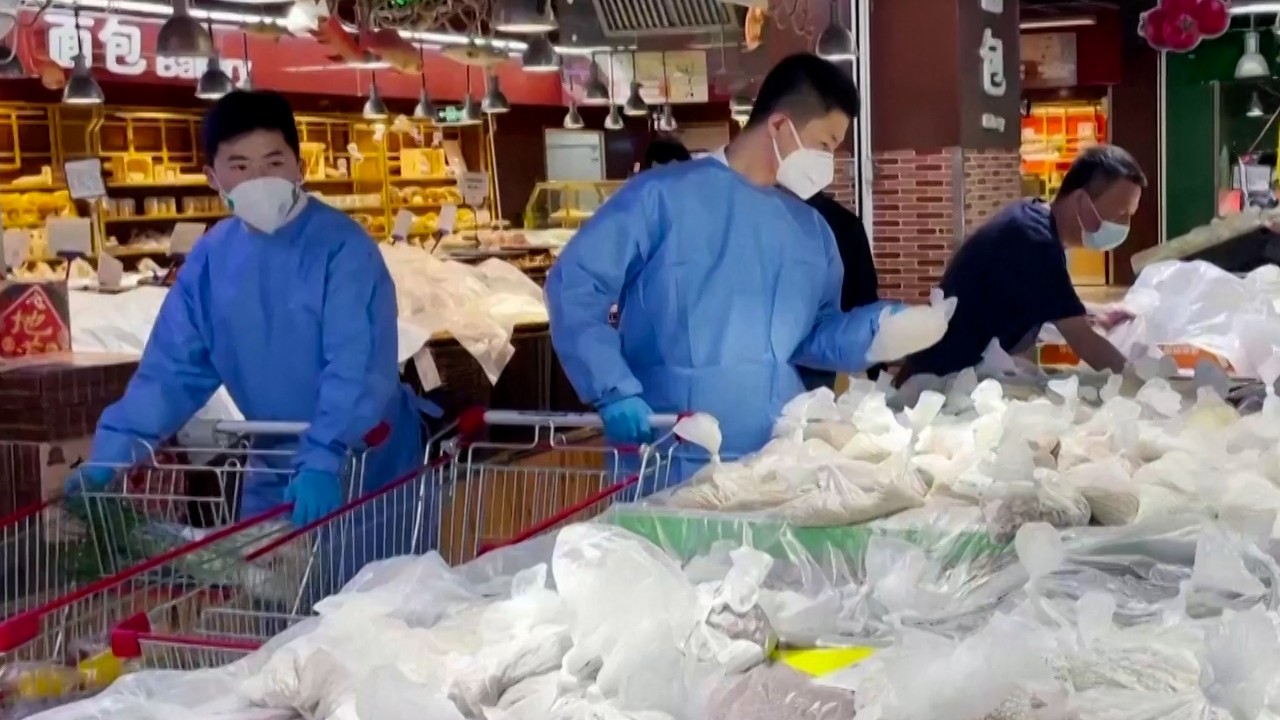
01:20
Shanghai residents allowed out to shop for groceries for first time in over 50 days

The plight of the 4.5 million people in Xinjiang’s Ili Kazakh autonomous prefecture highlights the danger of local governments stretching beyond their limits to enforce an obviously unsustainable zero-Covid policy.
It is the fourth time the prefecture has been locked down in the three years of the pandemic and so far it has lasted more than 40 days.
The lockdown has induced a food crisis, forcing many people to brave the risk of harsh punishment to vent their grievances and plead for help online.
Beijing has ordered local governments to adopt a nuanced approach to restrictions, saying limits should reflect the risk levels based on the number of cases in a residential compound or a street.
And, Ili authorities have not imposed an official prefecture-wide lockdown.
But from posts online, many people appear to have been locked in their homes for weeks and grass-roots cadres simply did not have the capacity to carry out the fine-tuned approach Beijing has called for.
Local governments all over the country bear the weight of the Covid-19 response, given the mainland authorities’ mistrust of individuals, civil society and market forces, and their obsession with centralisation that rids people of their ability to help themselves.
For local cadres, keeping cases low is the top priority as many elsewhere were punished when cases surged. This gives local officials strong incentives to cover up – and to go to extreme lengths.
For the zero-Covid policy to work at the level of sophistication Beijing desires, huge resources are required. Also, it will only work when the disease can be quickly contained, which is almost impossible with the highly transmissible Omicron variant.
It is not realistic to try to make extreme emergency measures a norm. As we saw in the fourth lockdown in Ili, the local government was stretched beyond its limits and the social fabric was torn.
The world was shocked in April to see the people of Shanghai, China’s richest city, face starvation, and Beijing has since tried to ensure a similar crisis will not happen to another first-tier city.
But these crises can easily erupt in smaller and remote places like Ili. People living in lesser known centres have complained online of job losses and food and medicine shortages.
Beijing needs a quick exit strategy for zero Covid for the entire country before there is even more pain in resource-strapped areas. It should also act now to make sure the people of Ili don’t starve.